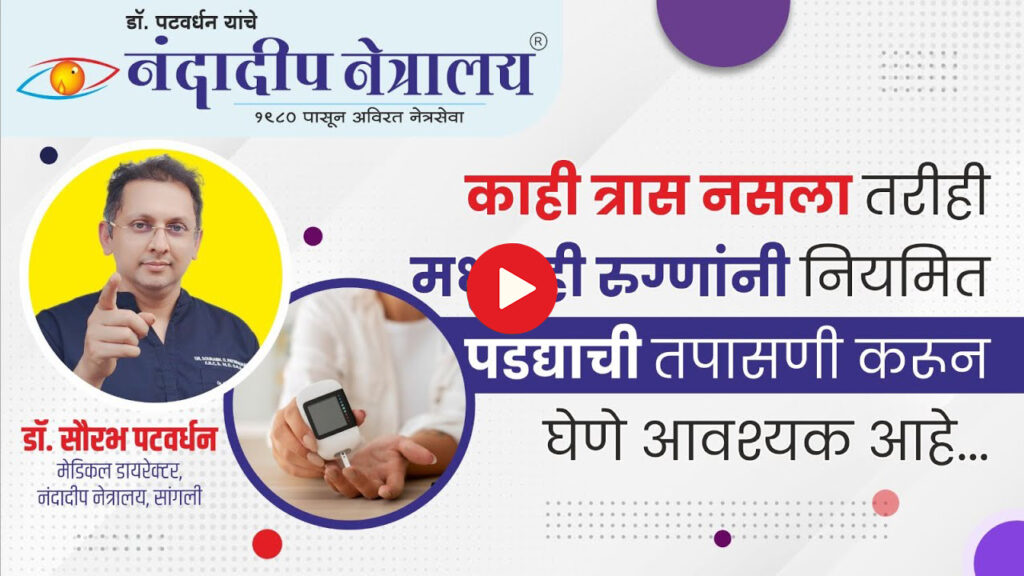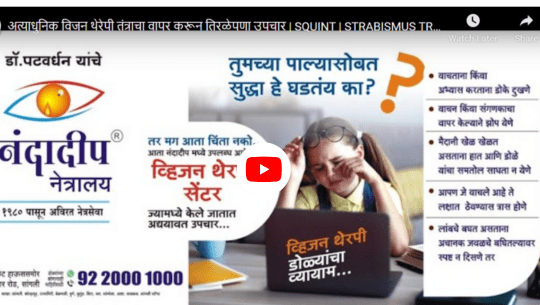Computer Vision Syndrome
Computer Vision Syndrome:
What You Need to Know
At Nandadeep Eye Hospital, we have a team of experienced and qualified ophthalmologists and optometrists who can diagnose and treat CVS with the latest technology and equipment. We also provide customized solutions for your digital eye strain, such as computer glasses, contact lenses, eye drops, or visual training.
Computer vision syndrome (CVS) is a condition that affects your eyes and vision when you use digital devices for a long time. CVS can cause symptoms such as:

Headache

Eye strain and Eye fatigue

Dry Eye
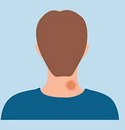
Neck or back pain

-
Eye Discomfort
This can manifest as dryness, watering, itching, burning, or the sensation of having something in your eye.
-
Blurred Vision
This symptom may come and go, particularly when shifting focus between near and far objects.
-
Headaches
Often occurring behind the eyes, these can be a result of the strain placed on the eye.
-
Eye Fatigue
A feeling of tiredness in the eyes after prolonged screen use.
-
Dry Eyes
Insufficient lubrication and moisture on the eye’s surface.
-
Red or Irritated Eyes
Can be accompanied by a burning sensation or excessive tearing.
-
Double Vision
Seeing two images of a single object, which may overlap.
-
Neck and Shoulder Pain
Discomfort in these areas can be related to poor posture and ergonomics while using digital devices.
-
Sensitivity to Light
Difficulty in handling bright lights, which can exacerbate eye strain.
-
Difficulty Refocusing Eyes
Challenges in adjusting focus between distances after looking at a screen for an extended period.
What are the causes of computer vision syndrome?
CVS is caused by several factors that make your eyes work harder when you look at digital screens, such as:

Poor lighting

Screen glare or reflection

Uncorrected vision problems

Improper viewing distance or angle

Inadequate blinking

How is computer vision syndrome diagnosed?
CVS is diagnosed by an eye doctor, who will perform a comprehensive eye exam and ask you about your symptoms, medical history, and digital device usage. The eye doctor will measure your visual acuity, which is how well you can see letters or numbers on a chart, and your visual field, which is how much you can see around you. The eye doctor may also use special devices or tests to assess your contrast sensitivity, colour vision, depth perception, and ability to adapt to different lighting conditions.
How is computer vision syndrome treated?
CVS can be treated and prevented by making some changes to your digital device habits and environment. Some of the tips include:
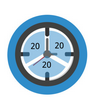
Follow the 20-20-20 rule
Every 20 minutes, look at something 20 feet away for 20 seconds. This can help relax your eye muscles and reduce eye strain.

Adjust your screen settings
Make sure your screen brightness, contrast, and font size are comfortable and easy to read. You can also use dark mode or blue light filter to reduce eye strain and improve sleep quality.

Reduce screen glare
Use an anti-glare screen protector or adjust your screen position to avoid direct light sources. You can also wear anti-reflective glasses or sunglasses to block out excess light.

Maintain good posture and ergonomics
Sit in a comfortable chair that supports your back and neck. Keep your screen at an arm’s length away and slightly below eye level. Avoid tilting your head or neck too much to see the screen. Take frequent breaks to stretch your body and relax your eyes.

Use artificial tears or eye drops
If you have dry eyes, you can use artificial tears or eye drops to lubricate your eyes and prevent irritation. You can also blink more often to keep your eyes moist and healthy.
At Nandadeep Eye Hospital, we can help you find the best treatment option for your CVS, depending on your eye condition, lifestyle, and preferences. We can prescribe you the right eyeglasses or contact lenses, recommend you the best eye drops or artificial tears, or provide you with visual training or counselling to improve your eye health and comfort.
How can Nandadeep Eye Hospital help you?
Lifestyle Modifications for CVS
At Nandadeep, we understand that small changes can make a big difference. Our experts guide patients through lifestyle adjustments that can significantly alleviate CVS symptoms:
-
1. Optimal Reading Distance
We teach the ideal distance from screen to eyes to minimize strain.
-
2. Ergonomic Posture
Proper seating and screen positioning can prevent neck and back discomfort while reducing eye fatigue.
-
3. Lighting Adjustments
We advise on the best lighting conditions to reduce glare and provide a comfortable viewing experience.

Dry Eye Therapy
Dry eyes are a common complaint among CVS sufferers. And we provide one of a kind Dry Eye clinic in southern Maharashtra.
Vision Therapy
To strengthen the eyes and improve focus, we provide specially designed exercises help train the eye muscles, improving the ability to focus and reducing eye fatigue.
Manual Eye Exercises at Home
We believe in empowering our patients with tools they can use anywhere. Our specialists teach easy-to-follow exercises that can be performed at home to relax the eyes and improve vision.
Customized Glasses for Computer Work
We offer, specialized Lenses Customized glasses with anti-glare and blue light filtering options are available to enhance visual comfort during computer work.
Eye Relaxing Exercises with Portable Tools
To ensure eye relaxation is always within reach, we provide tools are designed for simple exercises that can be done on-the-go to relax the eyes and prevent CVS.
Lifestyle-Based Questionnaire
We use detailed questionnaires to understand each patient’s unique lifestyle and visual needs, allowing us to tailor our care precisely.
Our Specialist

Dr. Sourabh D. Patwardhan
Phaco-Refractive-Vitreoretina- Glaucoma specialist FRCS (UK), MS (AIIMS), DNB, MNAMS, FICO
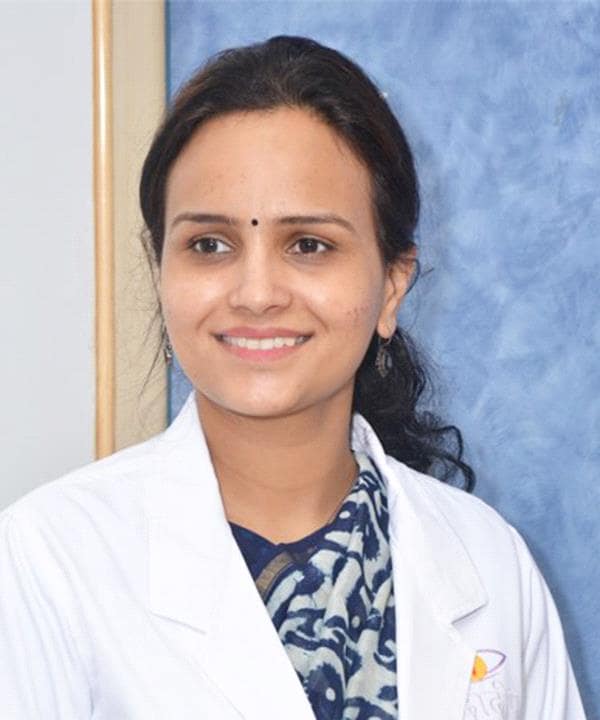
Dr. Nidhi S. Patwardhan
Cataract and Refractive specialist M.D. (AIIMS), FICO, D.O.M.S

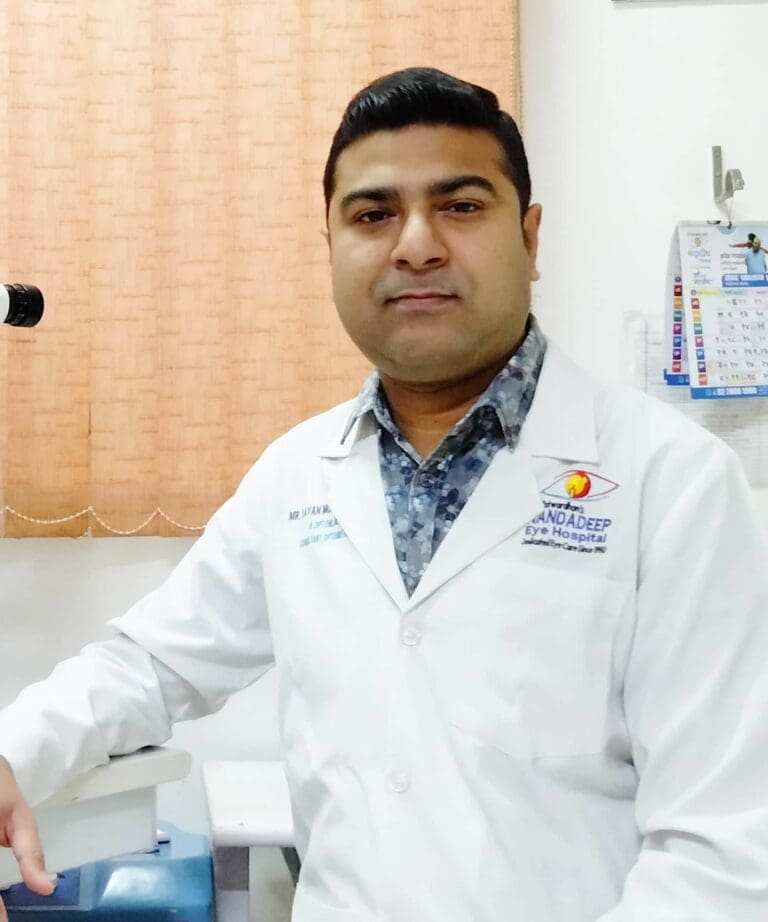
Optom Sayan Mukherjee
B.Optom., M. Optom. Consultant Optometrist, Vision Therapy, Speciality Contact lens
Why Choose Nandadeep Hospital ?Find Out The Latest Types Of Treatment Used For Computer Vision Syndrome
Explore our informative videos showcasing the latest advancements in Paediatric surgery options. From minimally invasive techniques to cutting-edge procedures, we provide in-depth insights into the innovative surgical approaches available for effectively managing Paediatrics and preserving your vision.


